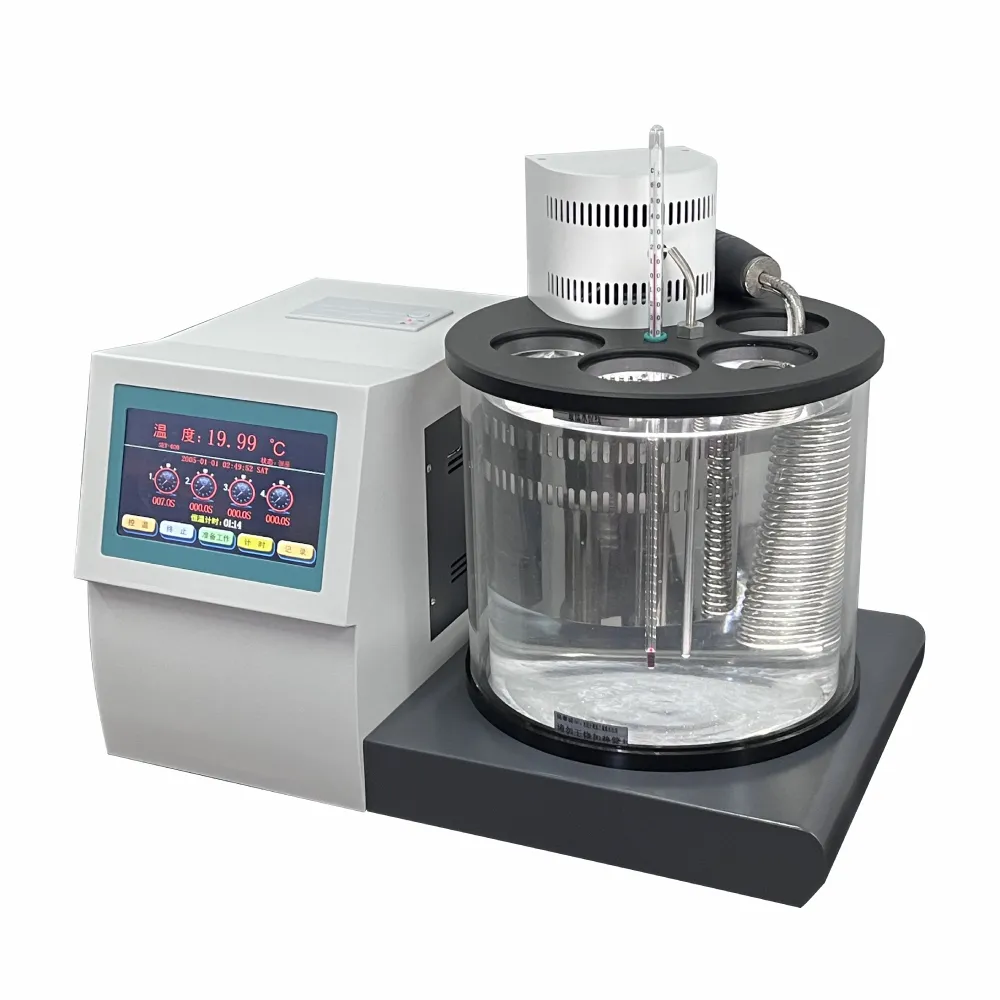 English
English


oil viscosity measuring instrument
The Importance of Oil Viscosity Measuring Instruments
Oil viscosity measuring instruments play a crucial role in various industries, including automotive, manufacturing, and oil and gas. Viscosity, a measure of a fluid's resistance to flow, is essential for determining the performance characteristics of lubricants and other oils. Understanding viscosity helps in optimizing the performance of machinery, ensuring proper lubrication, and maintaining operational efficiency.
What is Viscosity?
Viscosity is defined as the internal friction of a fluid, which affects how easily it flows. It's a key property that can influence how oils perform under different temperature and pressure conditions. High-viscosity oils provide better lubrication but may flow poorly at lower temperatures. Conversely, low-viscosity oils flow easily but may not provide adequate protection under high-load conditions. Therefore, accurately measuring viscosity is vital for selecting the right oil for specific applications.
Importance of Measuring Instruments
There are various types of oil viscosity measuring instruments, each with its unique operation principles and applications. These include capillary viscometers, rotational viscometers, and falling ball viscometers. Each instrument provides critical data that can impact the quality and efficiency of oil products.
1. Capillary Viscometers These are often used for lower viscosity fluids. The principle is simple the time it takes for a specific volume of fluid to flow through a narrow tube is measured, allowing for the calculation of viscosity. Despite being straightforward, capillary viscometers require careful handling and temperature control to yield accurate results.
2. Rotational Viscometers These instruments measure how much torque is needed to rotate a spindle immersed in the oil. This method is widely used for its ability to handle a broader range of viscosities and provide real-time measurements. Rotational viscometers are advantageous in industrial settings, as they can quickly adapt to changing conditions and supply continuous data.
oil viscosity measuring instrument

3. Falling Ball Viscometers This type uses the time it takes for a ball to fall through the oil to determine viscosity. It is effective for measuring the viscosity of larger volumes and can be particularly useful in quality control processes.
Applications in Various Industries
- Automotive Industry In the automotive sector, the viscosity of engine oils is paramount for vehicle performance. Using viscosity measuring instruments helps manufacturers and suppliers ensure that oils meet the required specifications for different engine types and operating conditions. Proper viscosity measurement can lead to improvements in fuel efficiency, engine longevity, and reduced emissions.
- Manufacturing In manufacturing processes, viscosity impacts the performance of lubricants used in machinery. Accurate viscosity measurements help determine the right lubricants, leading to optimized performance and reduced wear and tear on equipment.
- Oil and Gas For the oil and gas industry, viscosity measurements are crucial during the extraction and refining processes. Monitoring viscosity ensures that crude oil can be transported efficiently through pipelines and processed correctly in refineries.
Conclusion
Oil viscosity measuring instruments are indispensable tools needed to ensure the quality, safety, and efficiency of oils across various industries. Accurate viscosity measurements play a vital role in product selection and operational optimization, ultimately impacting overall performance and sustainability goals. As industries continue to evolve and demand the highest standards of efficiency, the role of these instruments will be increasingly significant in both research and application.
-
Differences between open cup flash point tester and closed cup flash point testerNewsOct.31,2024
-
The Reliable Load Tap ChangerNewsOct.23,2024
-
The Essential Guide to Hipot TestersNewsOct.23,2024
-
The Digital Insulation TesterNewsOct.23,2024
-
The Best Earth Loop Impedance Tester for SaleNewsOct.23,2024
-
Tan Delta Tester--The Essential Tool for Electrical Insulation TestingNewsOct.23,2024





